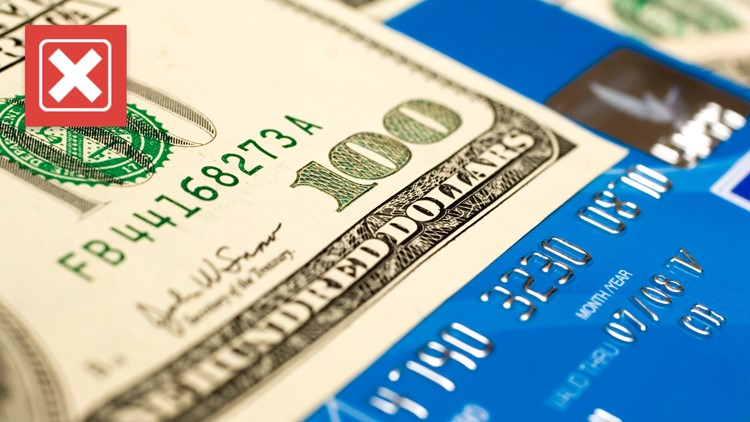The annual tax filing deadline, which is also known as Tax Day, falls on April 15, 2024.
With Tax Day fast approaching, VERIFY readers are sending us their last-minute questions about what counts as taxable income.
VERIFY reader Larry asked us if credit card cash-back rewards are taxable.
THE QUESTION
Are credit card cash-back rewards considered taxable income?
THE SOURCES
- Internal Revenue Service (IRS) spokesperson
- Erica York, senior economist and research director with the Tax Foundation’s Center for Federal Tax Policy
- Mark Steber, senior vice president and chief tax information officer at Jackson Hewitt Tax Service
- Sara Rathner, credit cards expert for NerdWallet
THE ANSWER
No, credit card cash-back rewards are not considered taxable income.
WHAT WE FOUND
Rewards credit cards often offer cash back for every dollar you spend. For example, Capital One offers credit cards that give people 1.5% cash back on all purchases.
But those cash-back rewards are not considered taxable income, the Internal Revenue Service (IRS) and several tax experts told VERIFY.
That’s because the tax system generally recognizes credit card rewards that people receive for spending money as discounts, or rebates, instead of taxable income, Erica York, a senior economist and research director with the Tax Foundation’s Center for Federal Tax Policy, explained.
In other words, if you purchase a new couch for $1,500 and receive 1.5% cash back, you’d get $22.50 in rewards cash. And if you apply it to your credit card statement, those rewards essentially just reduced the price of the couch by that amount.
“In that sense, [credit card rewards] are no different from a variety of other purchases where some portion of the price is rebated to the customer,” a spokesperson for the IRS added.
However, there are other credit card account-related incentives that can be subject to income taxes.
If you earn cash incentives that are not dependent on making purchases, such as a sign-up bonus that isn’t contingent on using the credit card or a referral bonus, they are treated differently and may be considered taxable income, according to York and Mark Steber, chief tax information officer at Jackson Hewitt.
“If you just open a credit card and they send you $1,000, you really haven’t done anything and those types of rewards can be taxable, although they’ve not been heavily enforced yet because not a lot of programs offer those, ” Steber said.
In these cases, a credit card issuer might send someone a 1099 Form, which is used to report non-employment income to the IRS. But the person’s payout “may have to exceed a certain threshold for this to happen,” Sara Rathner, a credit cards expert at NerdWallet, said.
Business owners should also be aware of different tax rules when it comes to cash-back rewards.
A business’s expenses are usually deductible against their income. So if the business owner spends $500 on something for the business, they can deduct that amount on their taxes. But cash-back credit card rewards reduce deductions for business expenses, York said.
For example, a business purchase of $500 that qualifies for 2.5% cash back would earn $12.50 in cash-back rewards. When the business redeems those rewards, that would ultimately reduce their total business expenses by that amount.



